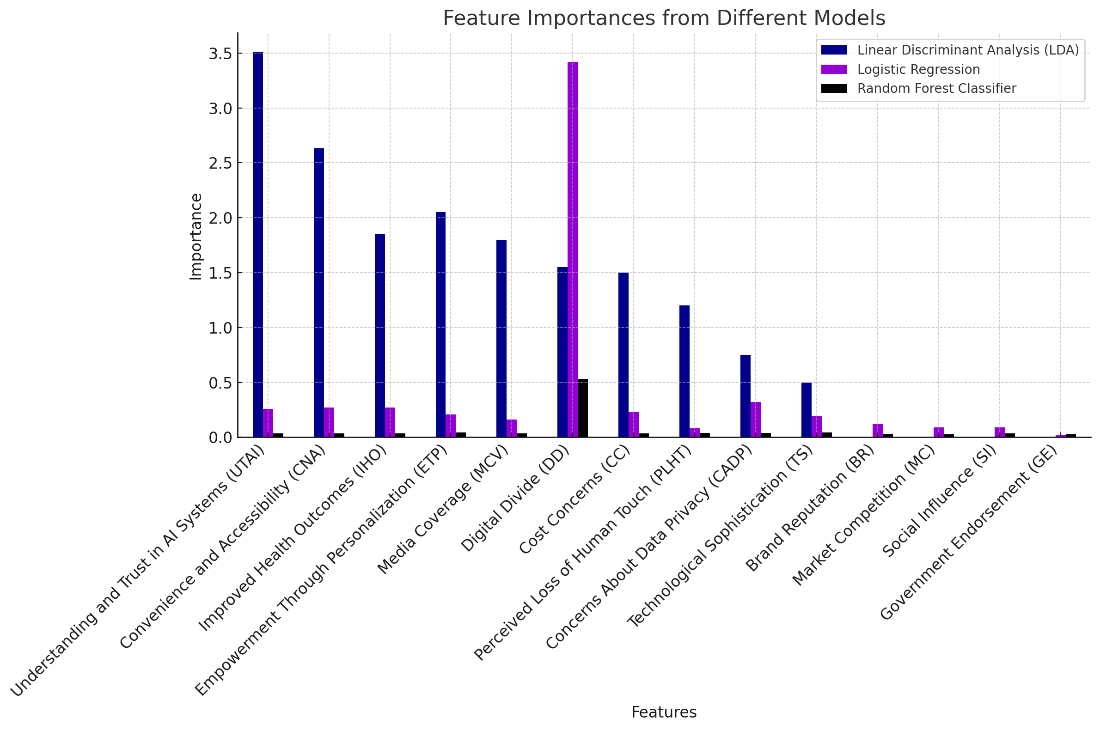Quantifying Healthcare Consumers' Perspectives: An Empirical Study of the Drivers and Barriers to Adopting Generative AI in Personalized Healthcare
Keywords:
Consumer Adoption, Data Privacy, Generative AI, Healthcare Accessibility, Machine Learning, Personalized Healthcare, Technology TrustAbstract
This study empirically examines the drivers and barriers of adoption of Generative AI (GenAI) in personalized healthcare from the perspective of healthcare consumers. A quantitative analysis was conducted on a sample of 376 healthcare consumers, defined broadly to include individuals and their families or caregivers who interact with healthcare services. The research employed machine learning multiclass classification methods, correlation analysis, and a probabilistic ordered regression model. The data set consisted of 376 observations with 15 features, which was preprocessed, imputed for missing values, and analyzed using StratifiedKFold with 10 folds. The performance of each model was evaluated based on accuracy, Area Under the Curve (AUC), recall, precision, F1 score, Kappa, Matthews Correlation Coefficient (MCC), and execution time. The results showed that Linear discriminant analysis (LDA) emerged as the top-performing model with an accuracy of 95.09%, AUC of 99.68%, and an execution time of only 0.038 seconds. The study also revealed significant correlations between variables and GenAI adoption, highlighting Digital Divide as the most influential factor with a negative correlation of -0.123504. Feature importance analysis from the LDA model indicated that Understanding and Trust in AI Systems, Convenience and Accessibility, and Improved Health Outcomes were among the top influencers. In Logistic Regression and Random Forest models provided Digital Divide consistently appear as a significant barrier to adopt GenAI based healthcare services. A probabilistic ordered regression analysis further elucidated the impact of these variables on adoption willingness. It showed that approximately 89.26% of the variability in willingness to adopt GenAI was explained by the independent variables, with Digital Divide, Convenience and Accessibility, and Understanding and Trust in AI Systems being statistically significant. The overall findings of the study show that the adoption of GenAI in personalized healthcare is primarily driven by its potential to improve health outcomes, increase accessibility and convenience, and provide personalized care. Barriers such as data privacy concerns, trust issues, and digital divide must be addressed to facilitate wider adoption. The study highlights the need for healthcare providers and policymakers to focus on these key areas to enhance the acceptance and effectiveness of GenAI-based healthcare services.

Downloads
Published
How to Cite
Issue
Section
License
Copyright (c) 2022 ResearchBerg

This work is licensed under a Creative Commons Attribution-NonCommercial-NoDerivatives 4.0 International License.




